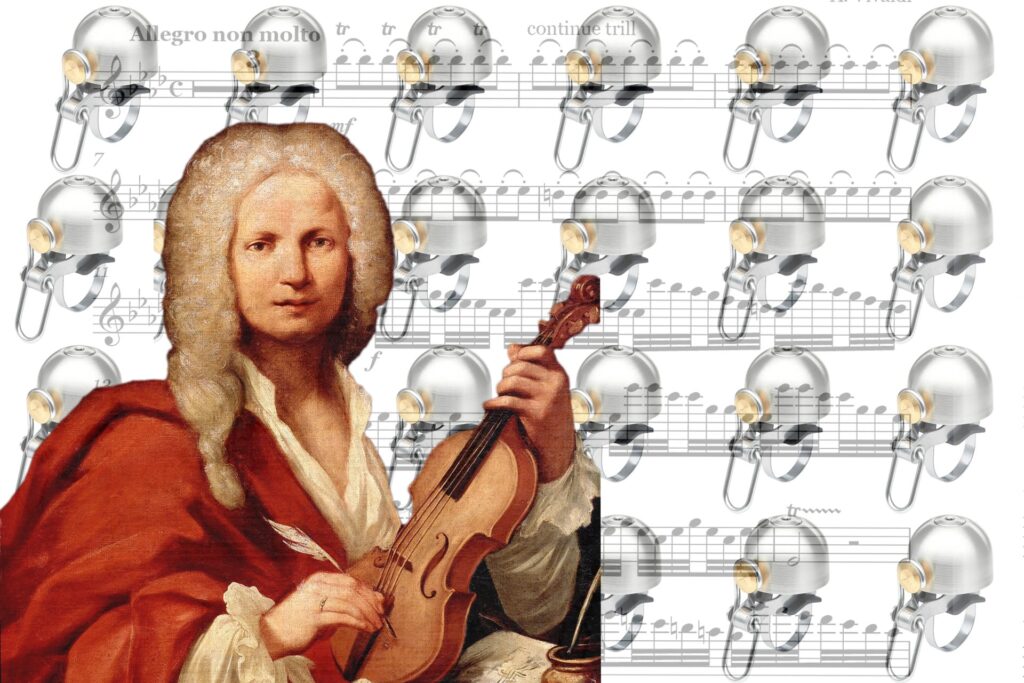
In a unique celebration of World Bicycle Day, 927 cyclists gathered in the town square of Jarocin, Poland, to perform the first movement of Vivaldi’s “Winter” from The Four Seasons using bicycle bells. This creative homage to both cycling and classical music took place amidst a town known for its rich musical heritage.
Antonio Vivaldi’s The Four Seasons, composed in the early 1700s, remains one of the most recognizable pieces of baroque music. Each concerto, representing a season, has been interpreted countless times over the centuries. However, the cycling community of Jarocin has added a novel twist to these timeless compositions.
The Musical Heritage of Jarocin
Jarocin is no stranger to musical innovation. During the Cold War, it hosted a defining alternative music festival for the Eastern Bloc, a tradition that continues today. The town also houses the Polish Rock Museum, underscoring its significant role in Poland’s musical landscape. Against this backdrop, the bicycle bell performance of Vivaldi’s “Winter” stands out as a testament to Jarocin’s ongoing musical creativity.
The event, coinciding with similar celebrations worldwide, such as Turkmenistan’s grand bicycle parades, highlights Jarocin’s commitment to cultural and communal activities. The performance, while whimsical, underscores the town’s dedication to fostering a vibrant cultural scene.
A Symphony of Bells
Executing a musical piece like Vivaldi’s “Winter” with bicycle bells presents unique challenges. Unlike traditional instruments, bicycle bells lack tuneability, producing a fixed tone. The performance in Jarocin relied heavily on a backing track of an actual orchestra to maintain the melody, with the cyclists’ bells adding a layer of charm and participation.
Despite the limitations, the event showcased the joy and community spirit of the participants. As one observer noted, the performance was less about precision and more about the collective experience of creating something beautiful together.
Exploring the Possibilities
Inspired by Jarocin’s endeavor, some enthusiasts have experimented with creating a more refined bicycle bell orchestra. By assembling a variety of bells, each with distinct tones, they sought to explore the melodic potential of these everyday objects. However, the inherent limitations of bicycle bells, such as their fixed pitches and lack of chromatic fidelity, present significant hurdles.
For instance, while some bells like the Fyxo Nice Bike bell and the Crane e-Ne offered pleasing intervals, others, like the Spurcycle, were less suited for orchestral use. The experiment highlighted the challenges of achieving a harmonious sound with such unconventional instruments.
The Broader Impact
While the Jarocin performance may not rival professional orchestral renditions of Vivaldi, it achieved something arguably more important: it brought people together in a shared celebration of music and cycling. Such events foster a sense of community and highlight the universal appeal of music, regardless of the instruments used.
“For the people of Jarocin, who went ding (and pling-a-ling) along to Vivaldi for a few minutes on World Bicycle Day, and in the process made the world a slightly more charming place for a little while.”
This initiative also underscores the enduring legacy of Vivaldi’s work, which continues to inspire and engage audiences more than 300 years after its creation. The performance in Jarocin is a testament to the timeless nature of his compositions and their ability to resonate across cultures and generations.
As communities worldwide look for ways to celebrate and connect, events like the bicycle bell performance in Jarocin offer a model for creative engagement. They remind us of the joy that can be found in collective endeavors and the power of music to unite and inspire.






